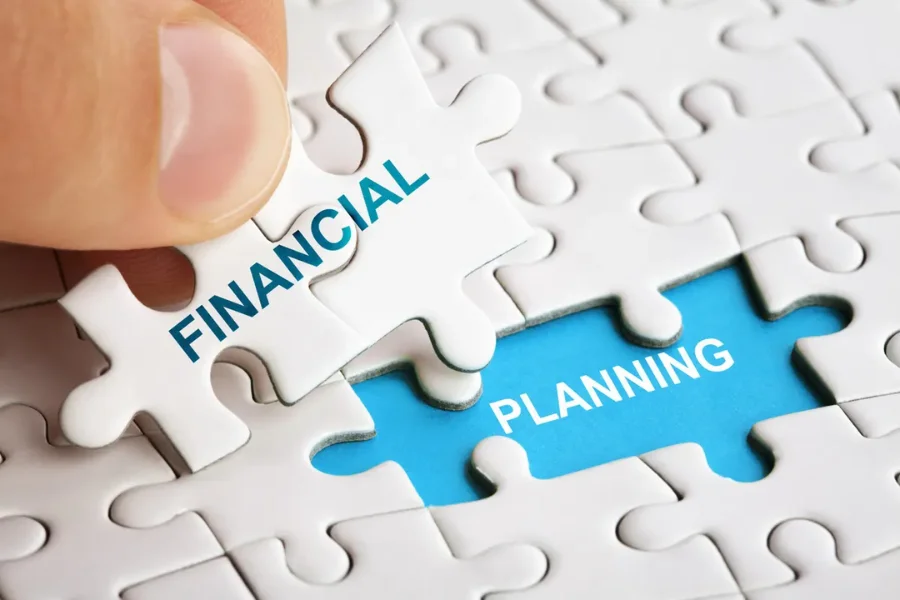Mastering Personal Finance: Tips to Build Wealth and Financial Freedom

Personal Finance
Do you find yourself struggling to make ends meet at the end of the month? Are you tired of living paycheck to paycheck? If so, you’re not alone. The truth is, many people struggle with personal finance, but the good news is that it’s never too late to take control of your money and start building wealth. With the right mindset and a few simple strategies, you can achieve financial freedom and create the life you’ve always dreamed of. In this article, we’ll explore some tried and true tips for mastering personal finance, including budgeting, saving, investing, and more. So, whether you’re just starting out on your financial journey or you’re looking to take your finances to the next level, read on to discover how you can build wealth and achieve financial freedom.
Why Personal Finance is Important
Personal finance is an important aspect of our lives that we often overlook. It’s not just about making ends meet and paying our bills on time. It’s about creating a plan for our future and achieving our financial goals. By mastering personal finance, we can gain control of our money, reduce stress, and build a better life for ourselves and our families.
One of the key benefits of mastering personal finance is the ability to create a safety net for ourselves in case of emergencies. By having savings and investments, we can protect ourselves from unexpected expenses, such as car repairs, medical bills or job loss. Additionally, by investing in our future, we can create a comfortable retirement and provide for our loved ones.
Another reason why personal finance is important is the sense of freedom and peace of mind it brings. When we have control over our finances, we can make better decisions about our lives, such as where we live, what we do for a living, and how we spend our time. This sense of control and freedom is essential for a fulfilling life.
Understanding Your Income and Expenses
The first step in mastering personal finance is understanding your income and expenses. This means taking a close look at your paycheck, bills, and other expenses to get a clear picture of where your money is going each month.
To understand your income, start by looking at your paycheck and any other sources of income you may have, such as rental income or side hustles. Make a note of how much you earn each month after taxes.
Next, look at your monthly expenses. This includes everything from rent or mortgage payments to utility bills, groceries, and entertainment expenses. Make a list of all your expenses and add them up to get a total.
Once you know how much you earn and how much you spend each month, you can start to create a budget that works for you.
Creating a Budget
Creating a budget is essential for mastering personal finance. It’s the foundation on which you can build your financial plan and achieve your goals. A budget is simply a plan for how you will spend your money each month. It allows you to prioritize your expenses, reduce unnecessary spending, and save for your future.
To create a budget, start by listing your monthly income and expenses. Then, prioritize your expenses by categorizing them as essential or non-essential. Essential expenses are things like rent, utilities, and food, while non-essential expenses are things like entertainment and dining out.
Once you’ve categorized your expenses, determine how much you can realistically afford to spend on each category. This will give you a clear picture of your spending habits and help you identify areas where you can cut back.
Finally, make a plan for your savings and investments. Determine how much you want to save each month and set up automatic transfers from your checking account to your savings account or investment account.
Debt Management Strategies
Debt is a common problem for many people, but it doesn’t have to be a source of stress and anxiety. By implementing some simple debt management strategies, you can reduce your debt and achieve financial freedom.
One strategy is to prioritize your debt payments. Start by paying off high-interest debt, such as credit card debt, first. This will save you money in the long run and help you pay off your debt faster.
Another strategy is to negotiate with your creditors. Many creditors are willing to work with you to create a payment plan that fits your budget. By negotiating with your creditors, you may be able to reduce your interest rate or lower your monthly payments.
Finally, consider consolidating your debt. This involves taking out a loan to pay off multiple debts, such as credit card balances or personal loans. By consolidating your debt, you can simplify your payments and potentially lower your interest rate.
Saving for Emergencies and Retirement
Saving is a crucial element of personal finance. It allows us to plan for our future and protect ourselves from unexpected expenses. There are two types of savings that you should consider: emergency savings and retirement savings.
Emergency savings are funds set aside for unexpected expenses, such as car repairs or medical bills. Experts recommend having three to six months’ worth of living expenses saved in an emergency fund.
Retirement savings, on the other hand, are funds set aside for your future. This includes savings in a 401(k), IRA, or other retirement account. It’s important to start saving for retirement as early as possible to take advantage of compound interest and maximize your earnings.
Investing in Stocks and Bonds
Investing is another important element of personal finance. It allows us to grow our wealth and achieve our financial goals. There are many types of investments to consider, including stocks, bonds, mutual funds, and real estate.
Stocks and bonds are two of the most popular types of investments. Stocks represent ownership in a company, while bonds represent a loan to a company or government. Both types of investments come with risks and rewards, so it’s important to do your research and invest wisely.
Real Estate Investing
Real estate investing is another way to build wealth and achieve financial freedom. This involves purchasing property with the goal of generating income or appreciation. Real estate investments can include rental properties, fix-and-flip projects, or commercial real estate.
Real estate investing comes with its own set of risks and rewards, so it’s important to do your research and invest wisely. Consider working with a real estate agent or financial advisor to help you navigate the process.
Side Hustles for Extra Income
Side hustles are a great way to earn extra income and achieve your financial goals. They can include anything from freelance writing to dog walking to selling products online. The key is to find a side hustle that fits your skills and interests.
By earning extra income through a side hustle, you can pay off debt faster, save more money, and invest in your future. Plus, side hustles can be a fun and rewarding way to explore new opportunities and learn new skills.
Tracking Your Progress and Adjusting Your Plan
Finally, it’s important to track your progress and adjust your plan as needed. Personal finance is a journey, and it’s natural to make mistakes along the way. By tracking your progress and making adjustments when necessary, you can stay on track and achieve your financial goals.
Consider using a budgeting app or spreadsheet to track your income, expenses, and savings. This will give you a clear picture of your financial situation and help you make informed decisions about your money.
Conclusion
Mastering personal finance is a journey that requires patience, discipline, and hard work. But with the right mindset and a few simple strategies, you can achieve financial freedom and build the life you’ve always dreamed of. By understanding your income and expenses, creating a budget, managing your debt, saving for emergencies and retirement, investing wisely, and earning extra income through side hustles, you can take control of your finances and create a better future for yourself and your loved ones. So, start today and take the first step towards financial freedom!













